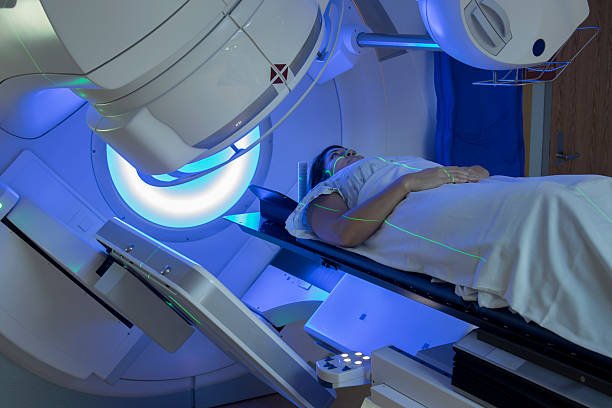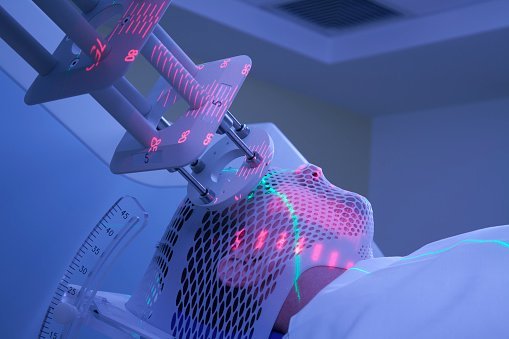Radiation can be defined as the amount of energy that originates from a source and travels through space as electromagnetic waves. The origin of the radiation can be traced back to the 1890s, and since then, the energy has improved the quality of life. Radiation is vital in agriculture, medicine, geology, exploration, and many other sectors. Today, radiation is widely used in almost all fields. This article will examine the most common radiation uses in today’s society.
1. X-ray Imaging and Diagnostic
The use of radiation to perform X-ray imaging operations was discovered in 1895 by Wilhelm Rontgen. In X-ray, radiation is used to examine the body’s internal parts. The radiation waves can easily penetrate the human skin and record the condition of the body’s internal parts in an X-ray image. These images are used for other medical procedures and diagnoses. Therefore, radiation significantly impacts saving and solving countless human body defects.

2. Scientific Applications
Radiation has a huge impact on the scientific field. Academic and other scientific institutions widely use radiation materials in research. The radiation waves allow scientists and researchers to study various laboratory components and experimental research. For example, radiation is scientifically used to examine the type and properties of air.
3. Carbon Dating Process
Radiation waves play a vital role in breaking carbon compounds from a material. Studies show that radiation energy can break down carbon 14 compounds from an object over time. The breaking down of carbon 14 compounds is constant, and because of this, researchers can easily approximate the age of an object.
4. Making of Smoke Detectors
The radiation energy assists in saving the environment from pollution. In the making of smoke detectors, americium-241 compound (Radiation emitting compound) is used to sniff the presence of smoke from the surrounding environment. In case of smoke, the americium-241 compound emits radiation, which in turn activates the smoke detector alarm. In addition, this technology can be applied the fire detectors alarms.
5. Radiation Therapy
Radiation therapy helps fight cancerous cells and other harmful cells in the body. The radiation energy makes small breaks in the cancerous cells, inhibiting the growth and spread of cancer. In addition, other treatments, like systematic radiation therapy, use radioactive-based substances administered through the mouth.
6. To Enhance Security
The radiation helps in detecting explosives and drugs. Today, radiation waves are used in airports, and other entry points to check for illegal drugs and weapons. The x-rays that use the radiation can easily take the bags’ snap and analyze the items with it. In addition, some radiation-related tools like spectrometry are capable of detecting explosives.
7. Detecting leaks
Radiation is a useful wave in detecting leaks and defects that other conventions may not detect. During welding and the production of metals, the production of defect-free products is highly valued. However, the manual process of checking for defects and leaks in the produced metals proves to be tedious and time-consuming. Therefore, most metal production firms have adopted radiation waves to check for defects, which is efficient and error-free.
8. Measurement
Measurement is a critical operation in various fields. With special gauges, radiation technology can make accurate measurements that are not detectable by any other method.
9. Body sterilization
Radiation waves are crucial in the irradiation process. Sometimes, the human body may be exposed to bacteria and other foreign antibodies that are likely to affect the body’s normal functioning. To fix the defect, the body may be exposed to radiation to kill the unwanted cells. Similarly, the donor’s blood is passed through the radiation to destroy the foreign antibodies during the blood transfusion.

10. Space Exploration
Interstellar space has unbearable conditions that are likely to affect space activities. Coldness and darkness, for example, are the greatest problems that negatively impact spatial activities. To fix these problems, explorers use radioactive elements to heat and warm the areas around their operations.
11. Agriculture Industry
Radiation helps in improving food production and packing conditions. In the Agriculture industries, for example, radiation plays a crucial task in producing improved seedlings that bring better and improved yields. Conversely, radiation is extensively used in manufacturing agricultural products to remove toxic elements and moisture from products. In addition, radioactive materials are used in producing insecticides and herbicides for farming practices.
12. Cleaning Air
Radiation is used in purifying the air and removing pollutants. For example, harmful gases from coal-fired power stations are full of pollutants, and the radiation can be used to clean the air and remove the saturated pollutants. The beam of radiation can arrest and remove nitrogen oxides and Sulphur dioxides from the air, resulting in clean air.
13. Production of electricity
The production of nuclear fission electricity is one of the mighty use of radiation. Radioactive materials that, in turn, produce electricity fuel nuclear power plants. Uranium, for example, is a critical substance in nuclear power plants. It emits the radioactive materials needed to generate electricity.
14. Archaeological Activities
Radiation has several applications in the archeological field. Archeologists use radioactive materials to determine the type and age of a fossil. To determine the fossil’s age, archeologists examine the carbon -14 compounds in the fossils. The breaking down of carbon-14 compounds defines the age of the fossil. On the other hand, x-ray imaging, which uses radiation, is used to place fossils in their categories when determining the type of fossils.
15. Nuclear Medicines
Radiology and Hospitals use radioactive materials to carry out nuclear medicine procedures. In this procedure, the patient ingests radioactive material that monitors the body’s functioning. This type of procedure can be used to detect early stages of cancer and other defects in body organs.




